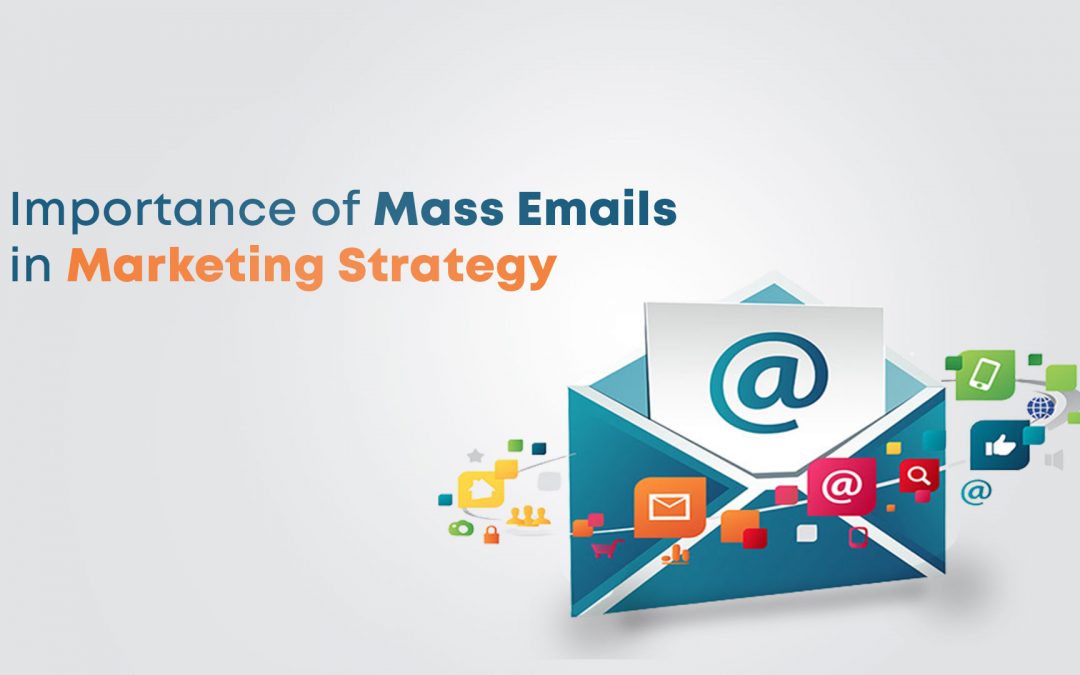Mass emails are a powerful tool in a marketing strategy because they allow businesses to reach a large audience quickly and efficiently. By sending a single email to a list of subscribers, businesses can promote their products, services, or brand to a large group of people at once.
One of the main advantages of mass emails is that they are cost-effective. Unlike traditional marketing methods, such as direct mail or print advertising, mass emails can be sent out for a fraction of the cost. This makes them an attractive option for businesses with limited budgets.
Mass emails are also easy to track and measure. With the use of analytics software, businesses can see how many people opened their emails, clicked on links, or made a purchase. This allows businesses to understand what works and what doesn’t and make necessary adjustments to their marketing strategy.
Another benefit of mass emails is that they are highly customizable. Businesses can segment their email lists based on demographics, location, or interests, and tailor their messages to specific groups. This helps ensure that the emails are relevant and targeted to the right audience.
Mass emails, also known as bulk emails or email blasts, are a common tool used in marketing strategies to reach a large audience in a short amount of time. Here are some reasons why mass emails are important in marketing:
1. Cost-effective: Mass emails are much cheaper than traditional forms of marketing, such as print or television ads. This makes them a great option for small businesses or startups with limited marketing budgets.
2. Targeted: Mass emails allow marketers to segment their audience based on demographics or interests and send targeted messaging to specific groups. This can increase the chances of a successful campaign and lead to higher conversion rates.
3. Measurable: Mass emails come with detailed analytics that allows marketers to track the success of their campaigns. This includes metrics like open rates, click-through rates, and conversion rates, which can help marketers optimize their strategies and target their efforts more effectively.
4. Personalization: Mass emails can be personalized with the recipient’s name and other details, making them feel more personalized and increasing the chances of them engaging with the content.
5. Scalability: Mass emails can be sent to thousands or even millions of recipients, making them a scalable and efficient way to reach a large audience quickly.
Some popular mass email tools for marketing strategy are;
1. Mailchimp: This platform allows you to create and send newsletters, automated emails, and targeted campaigns. It offers customizable templates and integration with social media and e-commerce platforms.
2. Constant Contact: This tool offers email marketing, event marketing, and survey tools to help businesses reach and engage their audience.
3. AWeber: This platform provides a range of email marketing tools, including automation, segmentation, and integrations with social media and e-commerce platforms.
4. GetResponse: This tool offers email marketing, webinars, and marketing automation for businesses looking to grow their online presence.
5. Drip: This platform focuses on providing email marketing automation for e-commerce businesses, including abandoned cart emails and personalized product recommendations.
6. Hubspot: This comprehensive marketing platform offers email marketing, social media, content management, and sales tools to help businesses grow and retain customers.
In conclusion, we can say that mass emails are an essential part of a marketing strategy because they are cost-effective, easy to track, and highly customizable. By using mass emails, businesses can reach a large audience and promote their products or services effectively.
 Finland
Finland Bangladesh
Bangladesh
